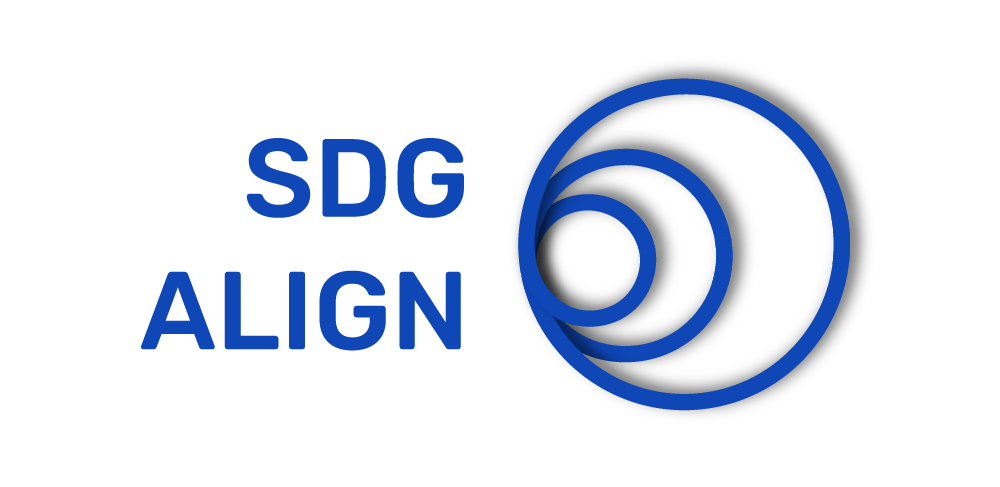SDG 14: Life Below Water – The Business Case for Ocean Conservation in Australia
At first glance, life below water might seem distant from corporate boardrooms and urban lifestyles. However, the choices we make, both in business and personally, profoundly impact our oceans. Australia’s surrounding oceans are not just scenic treasures; they drive economic growth and maintain environmental balance. SDG 14 highlights the deep connection between our marine ecosystems and sustainable business practices. In this article, we explore how life below water influences the Australian business ecosystem, the impact of our choices and the actions you can take.
Decoding SDG 14 in Current Times
SDG 14 underscores the imperative to conserve and sustainably use oceans, seas, and marine resources for sustainable development. In practical terms, this translates to preventing marine pollution, protecting marine ecosystems, and addressing the impacts of ocean acidification, among other concerns. Given Australia’s extensive coastline and dependence on marine resources, this SDG holds special relevance.
Key Targets of SDG 14 Explained
Here’s a concise breakdown of a few key UN Targets for this goal relevant to Australian business with case study examples:
Target 14.1: Prevent and significantly reduce marine pollution of all kinds, particularly from land-based activities.
Australia’s National Plastics Plan 2021 aims to reduce single-use plastics, increasing recycling rates, and monitoring marine litter. This has direct implications for businesses, especially those in the manufacturing, retail, and hospitality sectors.
Target 14.2: Manage and protect marine and coastal ecosystems to prevent significant adverse impacts.
The Great Barrier Reef Marine Park Authority has outlined plans and strategies to protect and manage the delicate ecosystems of the reef against various threats. Businesses involved in tourism, fisheries, and coastal development have a stake in the health and vitality of the reef.
Target 14.4: Regulate harvesting and end overfishing, illegal, unreported, and unregulated fishing and destructive fishing practices.
The Australian Fisheries Management Authority is implementing sustainable fishing practices ensuring that fish stocks are harvested responsibly. This is crucial for businesses involved in seafood processing, distribution, and retail.
Target 14.A: Increase scientific knowledge, develop research capacity and transfer marine technology.
The Future Oceans Cooperative Research Centre brings together researchers and industry to provide solutions for sustainable marine industries. This is highly relevant for businesses involved in marine technology, research, and development, as well as those looking to incorporate marine sustainability into their operations.

Life Below Water: Australia’s Stance
Australia, surrounded by oceans, has a deep connection to marine ecosystems. The Great Barrier Reef, a global treasure, serves as a testament to the country’s rich marine biodiversity. However, challenges like coral bleaching, marine pollution, and overfishing threaten this heritage. As the globe experiences a rise in sea levels and ocean temperatures, Australia’s marine ecosystems face intensified risks.
The Blue Economy
The concept of the Blue Economy is gaining momentum in Australia. This framework emphasizes sustainable marine economic activities, balancing economic growth with marine conservation. It encourages businesses to harness ocean resources sustainably, ensuring long-term benefits for both the environment and the economy.

Trending Business Initiatives
Australian businesses are rapidly adjusting to the demands of marine conservation in the face of climate change. Strengthened environmental regulations, particularly around marine ecosystems, are guiding companies to reevaluate their practices. Investors now prioritize businesses that adhere to sustainable marine practices, responding to an informed public that seeks eco-friendly brands. As a result, many businesses are collaborating with NGOs, innovating with biodegradable packaging, and leveraging technology to monitor and protect marine habitats.
Your Role in Championing SDG 14
Both individuals and businesses play pivotal roles in supporting life below water. Here are some actionable steps:
SDG 14 as an Individual
- Educate Yourself: Grasp the significance of marine conservation and understand how our daily choices can impact ocean health.
- Mindful Consumption: Be conscious of the chemicals in your personal care and household products. Many contain microplastics and harmful substances that can end up in our oceans, affecting marine ecosystems.
- Rethink Seafood Choices: Consider cutting down on seafood consumption or sourcing alternatives. If you do consume seafood, ensure it’s ethically sourced, but recognizing the broader impact of overfishing can also guide consumption choices.
- Reduce Plastic Use: Minimize your contribution to marine pollution by using reusable products and reducing single-use plastics.
- Beach Clean-ups: Participate in or organize local beach cleaning events to directly contribute to reducing marine debris.
SDG 14 in Business
- Marine Conservation Initiatives: Spearhead or support conservation programs. Partnering with NGOs or local communities can amplify your impact.
- Sustainable Sourcing with Marine Safety Checks: Ensure your supply chain respects marine ecosystems. Adopt certifications or checks that ensure products or services don’t harm marine life. For instance, businesses can ensure their ingredients or products don’t contain harmful chemicals like oxybenzone, which is found in many sunscreens and can damage coral reefs.
- Employee Awareness: Conduct workshops on the importance of marine conservation. Educate teams on the effects of chemicals and pollutants on marine life and how business practices can mitigate this.
- Eco-Friendly Packaging: Minimize plastic and other pollutants in your products. Consider certifications like “Plastic Neutral” or “Ocean Safe” to assure consumers of your commitment.
- Engage in Marine Research: Collaborate with marine biologists or research institutions. This can help in understanding your business’s direct and indirect impact on oceans and guide sustainable practices.
Reflecting on Sustainable Development
Curious about aligning your business with marine conservation efforts in Australia?
Our specialised assessment can begin to guide your business in making ocean-friendly choices. Let’s discuss further!
Further Insights
- The Blue Economy in Australia: Delve into the potential of sustainable marine economic activities.
- Innovations in Marine Conservation: Australian Success Stories: Read about businesses leading marine conservation efforts.
- Consumer Trends in Marine Sustainability: Understand the growing demand for ocean-friendly products.
- Challenges in Marine Conservation: A deep dive into the hurdles and solutions in marine conservation.
- Transitioning to Ocean-Friendly Business Models: A guide for businesses keen on amplifying their marine conservation efforts.









